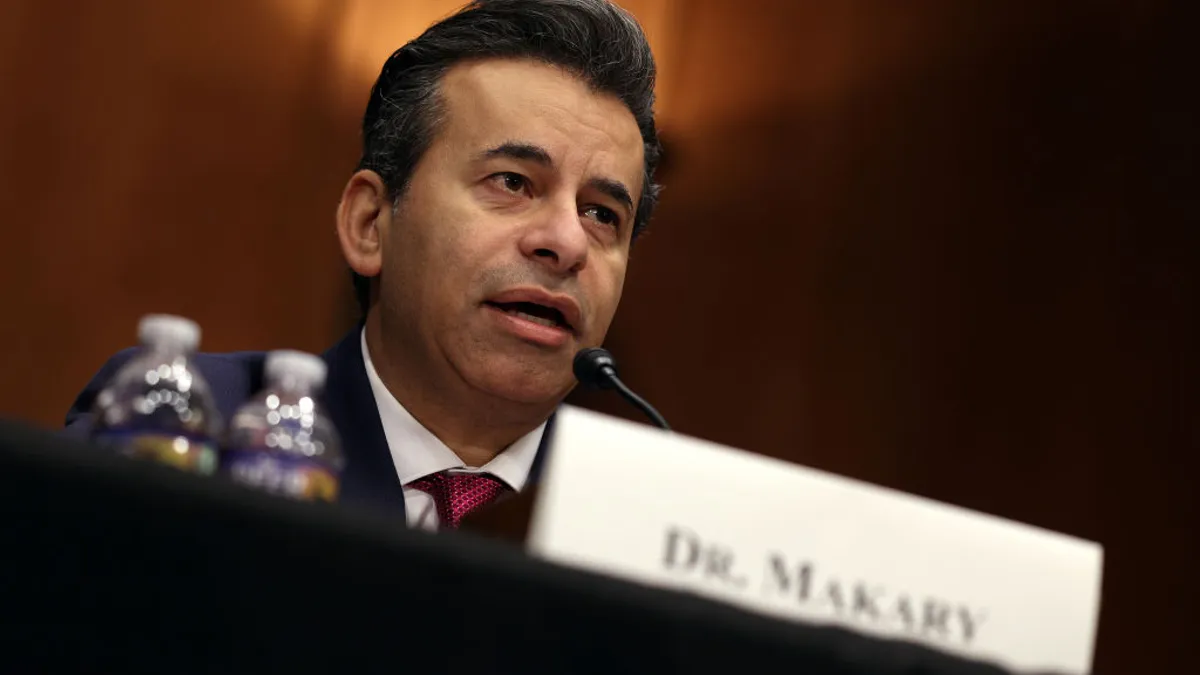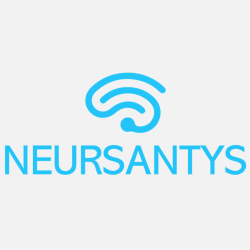FDA has granted emergency use authorization to a third COVID-19 antigen kit, the LumiraDx SARS-CoV-2 Ag Test, coming as demand appears to be growing for quicker, albeit potentially less reliable tests.
Joining a market with antigen kits from Quidel and BD authorized in May and July, respectively, the newly authorized test combines a single use fluorescence immunoassay device with an instrument to provide a result within 12 minutes. That's roughly inline with Quidel and BD turnaround times.
HHS said in a statement Wednesday the scalability and low cost of the product will help increase testing capacity, adding that the platform’s ability to detect inflammatory markers provides further benefits.
LumiraDx partnered with Chembio Diagnostics to develop a COVID-19 diagnostic for its microfluidic point-of-care testing system in March. Around the same time, LumiraDx began filing a series of SEC notices to disclose fundraising that Silicon Valley Bank later valued at $302 million.
Last week, FDA granted an EUA to the LumiraDx SARS-CoV-2 RNA STAR molecular test. On Tuesday, FDA followed up with an EUA for LumiraDx’s antigen test. LumiraDx said both tests deliver results within 12 minutes of the sample being added to its platform.
With LumiraDx stating it takes around one minute to prepare the antigen test sample, the whole process could take less than 15 minutes. If deployed at scale, such rapid tests could help economies reopen safely, provided they deliver reliable results.
FDA granted the EUA to the antigen test on the basis of a study of 257 nasal swabs taken from people with COVID-19 symptoms and key workers. Six facilities took the samples, including four sites “in which minimally trained operators collected and tested fresh specimens.” Results from the LumiraDx test were compared to a reference RT-PCR assay.
| Company | Date of EUA | Sensitivity | Specificity | Time to results |
|---|---|---|---|---|
| LumiraDx | Aug. 18 | 98% | 97% | 12 minutes |
| BD | July 2 | 84% | 100% | 15 minutes |
| Quidel | May 8 | 97% | 100% | 15 minutes |
The tests are judged on sensitivity, the likelihood to deliver true positive results and avoid false negatives, and specificity, the likelihood to deliver true negative results and avoid false positives.
The LumiraDx and reference products gave the same result most of the time, giving the antigen test a sensitivity of 98% and specificity of 97%.
Quidel’s Sofia SARS Antigen FIA achieved 97% sensitivity and 100% specificity in its premarket study. The BD Veritor System for Rapid Detection of SARS-CoV-2 also achieved 100% on specificity but fell well short on sensitivity, scoring 84%.
BD and Quidel respectively tested samples taken within five and seven days of the onset of symptoms. The EUAs of both those tests only support the testing of samples taken within five days from the onset of symptoms. LumiraDx, in contrast, tested samples taken as long as 12 days after the onset of symptoms. The LumiraDx EUA supports testing up to 12 days after symptoms start.
Capacity challenges
Quidel’s study, like those run by LumiraDx and BD, used direct nasal swabs. With the availability of nasal swabs limiting testing capacity, Quidel on Wednesday noted it's amended the labeling of its antigen test to also support the use of nasopharyngeal swabs, which the company contends are common in hospital sampling and will help ease supply chain constraints for nasal swab-based kits.
The capacity-boosting change comes shortly after Quidel and BD landed commitments from 10 states to order a total of 5 million antigen tests. BD also has an agreement to sell 750,000 antigen kits to HHS and 2,000 of its Veritor Plus systems that the tests run on, as part of agency's efforts to provide COVID-19 testing to nursing homes nationwide.
Assistant Secretary for Health Admiral Brett Giroir addressed capacity concerns in a call Wednesday. While acknowledging that test availability will be "tight" through August and September, Giroir contends by prioritizing nursing homes HHS should be able to supply them with what they require.
A BD spokesperson said the company is in the process of an "aggressive" manufacturing ramp-up and will be producing 10 million tests by the end of September. Going forward, BD's goal is to produce 8 million tests per month and by March 2021 achieve a 12 million test-per-month run rate.
Analysts at William Blair questioned the immediate U.S. impact of LumiraDx's offering, noting that there aren't likely many LumiraDx instruments already distributed throughout the U.S., and that a single device can only run one test every 12 minutes.
"The reality is there is a limitation on components and supplies for making antigen tests and the larger companies would seem to have been able to take a large percent of this," analysts wrote.
More likely, an immediate game-changer would come from a more established medtech, analysts predicted. "We believe the most likely next approval, and the one with enough scale and access to critical testing components and infrastructure to make an immediate impact, would come from Abbott."
The analysts believe that if Abbott succeeds in bringing a test, it could manufacture "tens of millions of visually read antigen tests per month, likely at a price point right at around $10," equating to a $1 billion to $2 billion opportunity for the company.
Greg Slabodkin contributed to this story.



















